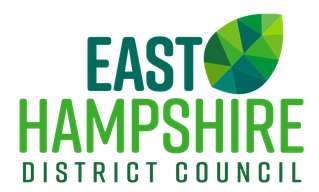
Our ambition is to find new ways to make homes affordable to people who can’t get on the property ladder.
To achieve this we have launched our new Affordable Housing Strategy which lays out how we can make homes more accessible to more people.
Modular homes for the homeless and shared equity schemes with housing associations are two of the ways more affordable homes can be delivered in the district.
The plan has been outlined in our new Affordable Housing Strategy, discussed and approved by Cabinet on Thursday night, that will reduce housing need and homelessness.
The new strategy sets out how we can increase the supply of high-quality, low-cost homes that are suitable for everyone and won’t damage the environment.
And it is backed with around £2 million drawn from developers who made financial contributions in lieu of building affordable homes.
Cllr Julie Butler, EHDC Deputy Leader and Portfolio Holder for Community Engagement, said: “There is an urgent need for affordable homes in East Hampshire. It is one of the most expensive places to live and many people can’t afford market price homes, even though they may have grown up here or work here now.
“For these people, their housing situation can be the cause of stress or anxiety and the links between poor housing and poor physical and mental health are widely accepted.
“We want to find a way to make more affordable homes available to people in the district and this strategy sets out how we can do it.”
Among the methods proposed is a shared equity agreement with housing associations. One such partnership, with Merlion Housing Association, offers homes at a discount of up to 50 per cent market value with no rent to pay. To date 39 homes have been delivered through this innovative partnership, with a further four in the pipeline.
The council is also well placed to undertake small development projects of its own, either in isolation or in partnership with another affordable housing provider, using developer contributions as a funding source.
The strategy also focuses on the need to reduce and prevent homelessness in the district. Although the number of people sleeping rough is low, there is still a significant problem with households at risk of homelessness.
From April 2020 to March 2021,112 households were assessed as homeless and 176 as threatened with homelessness.
Part of the solution to this issue has been the transformation of a former community hall into ten pods for homeless people. Pinewood Lodge, in Whitehill & Bordon, is the first scheme in the country to use modular housing in this way and it is hoped similar developments might be provided elsewhere in the district in future.
The strategy also places environmental sustainability at the heart of future building projects with the clear message that the council is leading the way on tackling climate change.
New technologies and building techniques will be explored and incorporated within council-funded affordable housing projects to limit our impact on climate change and benefit the lives of the new occupants.
